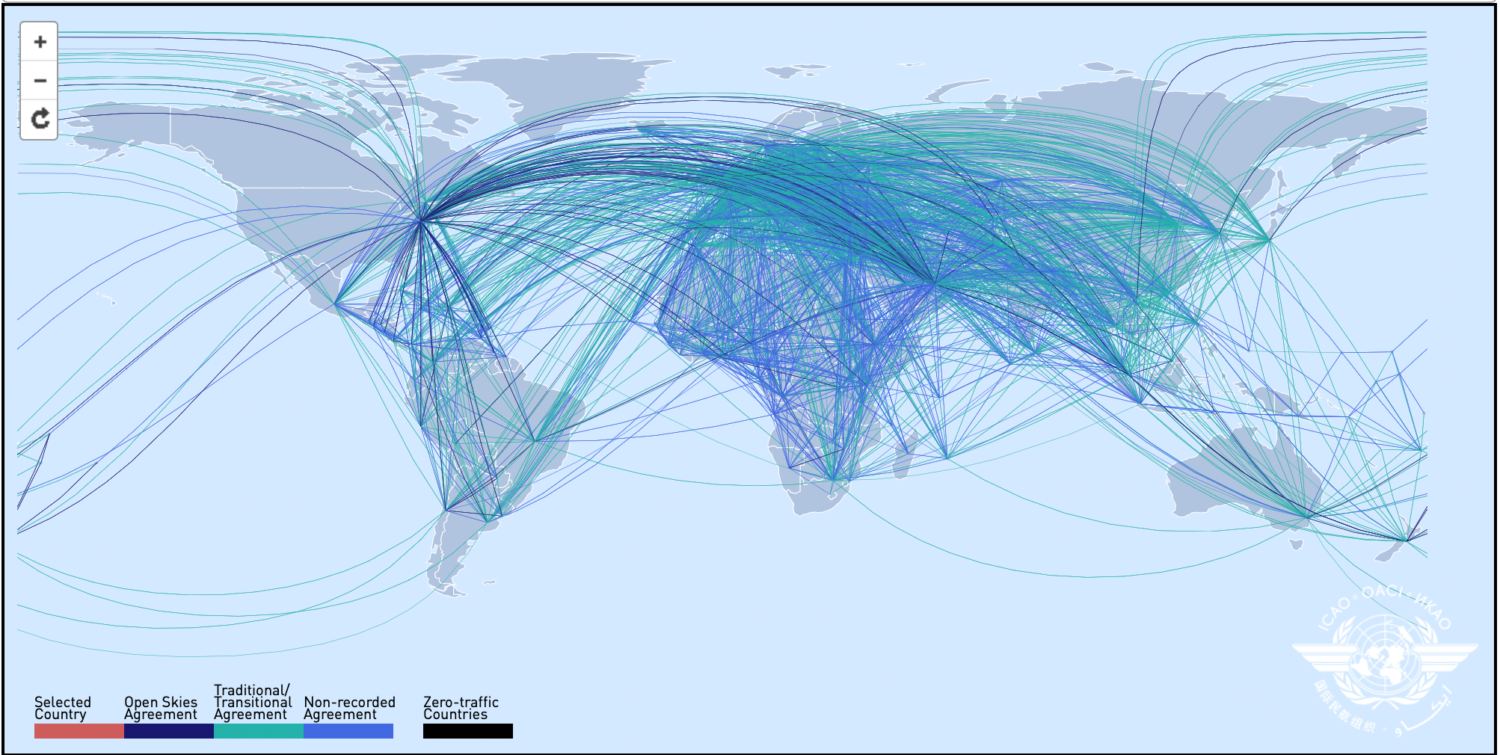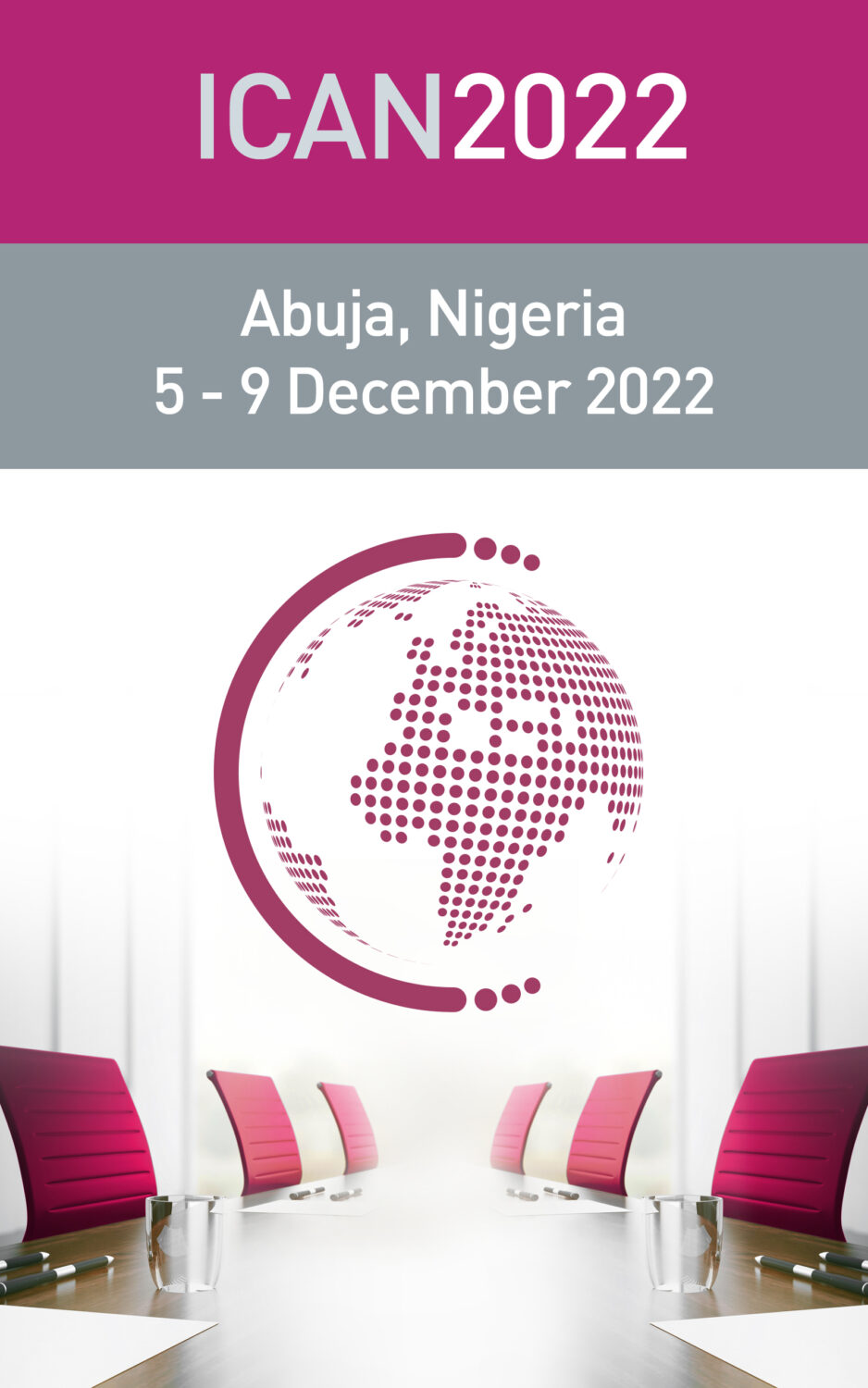The term “air connectivity” is widely and commonly used, however, there is no single definition of the term. During the Sixth Worldwide Air Transport Conference that was held in 2013, ICAO described air connectivity as the ability of a network to move a passenger from one point to another with the lowest possible number of connections and without an increase in fare, focusing on, from a commercial perspective, minimum connecting times with maximum facilitation ultimately resulting in benefits to air transport users.
This broad definition of air transport connectivity illustrates that there are several factors that enable connectivity, from the availability of air transport services and airline practices to security and facilitation procedures.
Liberalization
When considering the availability of air transport services, it is important to talk about air service agreements. According to Article 1 of the Convention on International Civil Aviation (Chicago Convention), States have complete and exclusive sovereignty over the airspace above their territories. To allow for air transport between, above, and among themselves, States have concluded various international instruments including air services agreements. The current “network” (from the definition of air connectivity) relies on over 5,000 bilateral air services agreements between States, which are at the heart of, and the result of, the exchange of traffic rights, market access, safeguards, environmental requirements, and other considerations.

Studies have shown that the degree of liberalization of air transport markets is closely correlated with air connectivity. As a result, the potential of air connectivity to deliver its socio-economic benefits increases as air travel becomes more accessible with competitive fares – which can be achieved through carefully designed liberalization encompassing market and capital access, notably in terms of more “open skies” and removal of restrictions on air carrier ownership and control.
There is a clear trend of a growing number of liberalized agreements, including many “open skies” agreements, being concluded over the years. While this trend could contribute towards a wider consensus leading to multilateralism in the exchange of commercial rights, the majority of States continue to use the bilateral approach in their liberalization of market access.
Concluding such a vast number of bilateral agreements is a very complex and time-consuming task, which may require several rounds of meetings, multiple travels of delegations back-and-forth and incur substantial expenses. The reward is securing incremental improvement in the State’s connectivity, which – as established above – brings about significant socio-economic benefits to society.
The ICAN Event
Making these negotiations more efficient and cost-effective is what the ICAO Air Services Negotiation Events (ICAN Events) are all about.
The ICAN event is a “one-stop-shop” forum for States’ delegations to gather in one central location over the course of 5 days and conduct multiple bilateral (or pluri/multi – lateral) negotiations of air services agreements and arrangements. Since its inception in 2008, ICAN has been highly commended by participating Delegations as an efficient platform for conducting air service negotiations. The number of countries that utilizes this facility has steadily increased. More than 160 States have participated in and benefited from ICAN at least once.
In practice, this translates into a Delegation’s ability to schedule meetings with other Delegations in advance of the event, conduct follow-up negotiations or final signatures as required, touch base informally with the other delegates and discuss at various networking occasions. This eliminates multiple travels to each other’s capitals, follow-up emails, internal travel budget requests, etc.
Along with the rest of the world, ICAN has adapted to the new realities of doing business. The event is conducted in a hybrid format allowing for in-person as well as virtual participation. Delegations can also decide to have certain members on-site, while others would be supporting remotely. As such, the event is supported by an online registration-based platform where participants can join the Opening and Closing Ceremonies remotely, schedule and join negotiations, take part in Business to Business (B2B) and informal meetings or informally reach out to other attendees.
You are invited to ICAN2022
Air connectivity, liberalization and the ICAN event are closely interlinked and jointly contribute to the sustainable development of aviation and economies globally.
This year’s ICAN event (ICAN2022) will be held in Abuja, Nigeria, from 5 to 9 December. States who have not yet registered are encouraged to reach out to ICAO by email here and to register for the event here. Registration is key, the event is intense so negotiation sessions have to be scheduled in advance.
We look forward to seeing you in Nigeria. Please visit the ICAN2022 website and have a look at this video shared by the Nigerian CAA:
About the author
Julie Zabrodska is an associate aviation officer in the Economic Development Unit of ICAO’s Air Transport Bureau.


